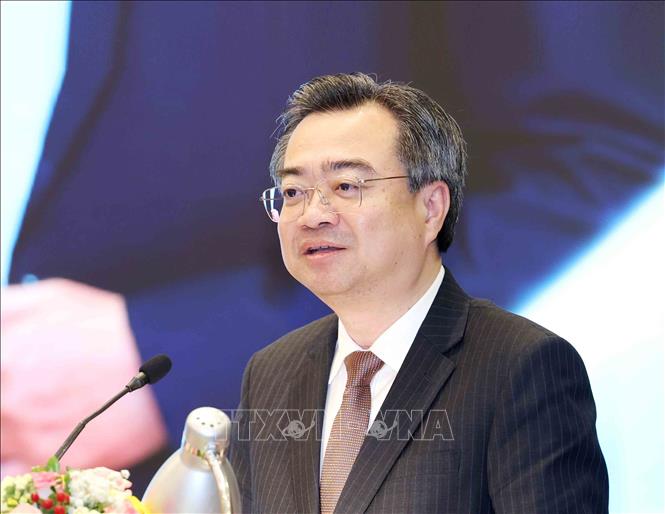
Need for new, more comprehensive and innovative mechanisms and policies
Chairing and delivering the opening speech at the workshop, Party Central Committee member and Head of the Central Policy and Strategy Committee Nguyen Thanh Nghi emphasized that Ho Chi Minh City plays a particularly important role in the Vietnamese economy ; it is a growth pole, the largest economic center with a contribution of over 23% of the national GDP. This is "a place that gathers outstanding achievements in industry, trade, services, seaports and international integration of the country", on the way to becoming "a megacity - a financial, production, logistics and innovation center of regional and world stature" - as General Secretary To Lam affirmed to the Party Committee and people of the city.
According to Head of the Committee Nguyen Thanh Nghi, Resolution 98/2023/QH15 dated June 24, 2023 of the National Assembly on piloting a number of specific mechanisms and policies for the development of Ho Chi Minh City has created positive changes, helping the city's economy recover and grow, but is still not enough to remove structural "bottlenecks", especially in attracting investment and strategic investors.
To be commensurate with the mission, position as the economic locomotive, innovation, growth driver of the whole country and to meet the requirement of becoming a modern, innovative megacity and among the top 100 livable cities, the Head of the Central Policy and Strategy Committee emphasized the need for new, more innovative and comprehensive mechanisms and policies.
International experience shows that the successful formation and development of "megacities" in the world are always associated with a unique urban management mechanism, with outstanding investment incentive policies, strong decentralization and delegation of power, innovation in public finance mechanisms, budget allocation and use, capacity building and innovation in the operating mechanism of the smart urban management apparatus associated with the development of e-government and digital government.
The workshop is even more meaningful when taking place in the context of the National Assembly considering amending and supplementing Resolution No. 98/2023/QH15 with many new policies, including policies to attract strategic investors. This is an opportunity to listen to recommendations and proposals for innovative and breakthrough mechanisms and policies to soon turn Ho Chi Minh City into an international economic, financial and commercial center and develop on par with major cities in the world, contributing significantly to realizing the country's two 100-year development goals.
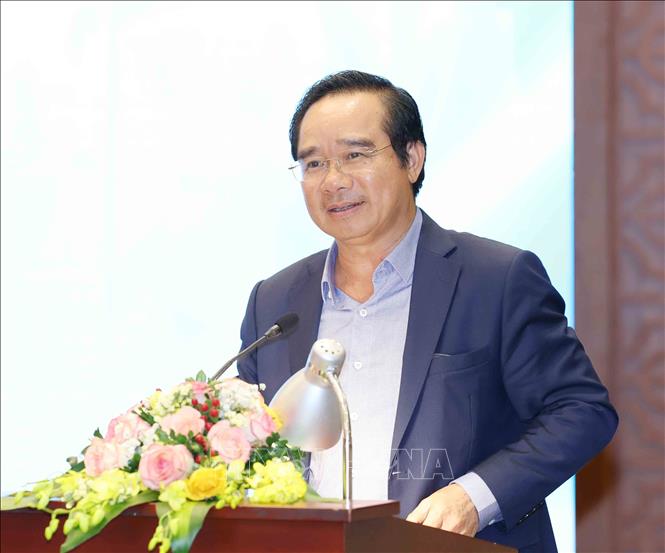
In his opening speech at the workshop, Party Central Committee member and Chairman of the Ho Chi Minh City People's Committee Nguyen Van Duoc stated that the City is entering a new phase of development, with the aspiration to become a modern, innovative city with a prominent position in the region and among the top 100 livable global cities with high income. To realize this goal, the City must simultaneously address two major bottlenecks: institutions and capital. In that context, strategic investors play a key role.
Accordingly, Resolution No. 98/2023/QH15 has opened a special mechanism for Ho Chi Minh City to make a breakthrough in development. However, after more than two years of implementation, the content on strategic investors still has many shortcomings such as the list of priority fields and projects to attract investors is still narrow; the process of selecting investors is still complicated; the criteria for determining strategic investors do not reflect the actual capacity of investors; incentives are not competitive enough; there is no flexible planning mechanism for investment projects in the priority list. These shortcomings have made it difficult for the City to attract strategic investors within the framework of the Resolution.
Based on the summary of the city's practices and new vision after the merger, the draft Resolution amending and supplementing Resolution No. 98/2023/QH15 proposed to add 5 groups of policies on attracting strategic investors. These are: Expanding the list of priority projects to attract strategic investors; adjusting the conditions for strategic investors to reflect their actual capacity; simplifying the procedures for registration and selection of investors; supplementing regulations on incentives and disbursement responsibilities; shortening the planning process for priority projects to enhance the city's initiative in spatial and urban development.
The Chairman of the Ho Chi Minh City People's Committee suggested three issues to focus on in the main presentation session and the discussion session, including: Identifying a list of priority areas to attract strategic investors; proposing policies and tools to attract strategic investors effectively and transparently; proposing solutions to improve the capacity to attract, select and accompany strategic investors, in order to create a breakthrough in mobilizing social resources.
Propose outstanding, internationally competitive offers
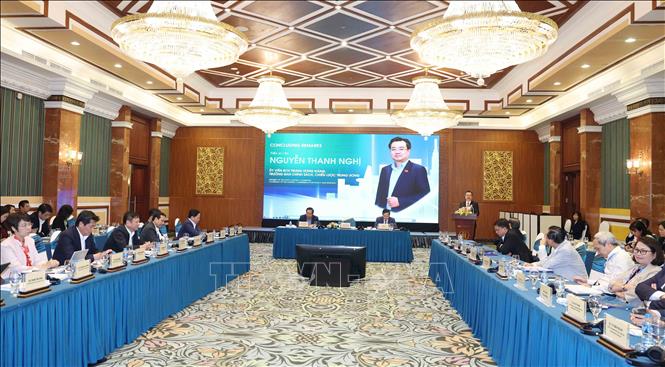
At the main discussion session, experts and scientists focused on discussing mechanisms and policies to attract strategic investors to upgrade and supplement Resolution No. 98/2023/QH15, serving the goal of economic restructuring and turning Ho Chi Minh City into a creative super city. Many delegates emphasized the need to create outstanding incentives, international competitiveness and identify investors as "development partners" with the State.
Professor, Dr. Vu Minh Khuong (Lee Kuan Yew School of Public Policy, Singapore) proposed a series of fundamental shifts in the orientation of attracting strategic investors. He recommended establishing the Southeast Inter-Regional Development Agency; ensuring incentives for strategic investors at the same level as Singapore, Dubai, Ireland; allowing the city to create new sources of revenue associated with endogenous development, piloting sandbox; establishing a "companionship - co-creation" mechanism with 20-50 leading corporations in strategic fields...
Emphasizing the leading role of strategic investors in the five pillars of growth, Dr. Tran Du Lich, Chairman of the Advisory Council for Resolution No. 98/2023/QH15, Member of the National Monetary Policy Advisory Council, proposed expanding priority sectors and fields; being more flexible in the investor selection process; designing incentive policies according to project groups. He recommended four key directions: Re-evaluating the role of investors as creative partners; developing internationally competitive policies; adding criteria on the ability to form an ecosystem of supporting businesses and only prescribing policies at the framework level, decentralizing to the City People's Council to issue specific regulations according to practice.
Considering that Ho Chi Minh City is in a period of strong restructuring, Dr. Nguyen Dinh Cung (former Director of the Central Institute for Economic Management) suggested clearly defining criteria for selecting strategic investors; prioritizing 5 key sectors; designing outstanding incentives; implementing capital mobilization; building an "Institutional Sandbox Resolution" so that the city can become an "institutional laboratory" leading national innovation.
Sharing the same view on the need for institutional breakthroughs, Associate Professor, Dr. Vu Tuan Anh (Director of the Vietnam-Germany Transport Research Center, Vietnam-Germany University) said that it is necessary to perfect the policy framework to attract strategic investors to serve urban railway, high-speed railway and TOD projects. He emphasized the need to unify the PPP legal framework and the mechanism for collecting added land value; establish the City Urban Railway Corporation; announce the list of TOD projects; select investors based on their overall capacity; and a mechanism for financial support, risk sharing and encouragement of domestic and foreign joint ventures.
At the Discussion Session, delegates attending the workshop focused on discussing the issue of identifying strategic investors; bottlenecks and bottlenecks that limit attracting strategic investors; areas that need to attract strategic investors; proposing groups of specific and outstanding mechanisms and policies to attract investment for strategic development projects; policy testing mechanisms; risk sharing mechanisms in public-private partnership projects; piloting the "one-stop management" model for strategic investors in a number of new areas...
More substantive empowerment for Ho Chi Minh City
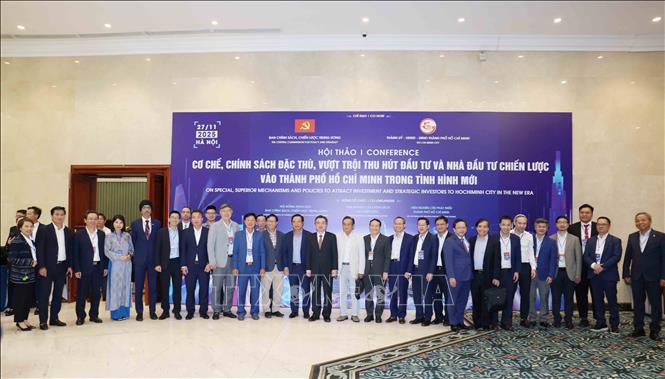
Agreeing with the opinions discussed at the workshop, Head of the Central Policy and Strategy Committee Nguyen Thanh Nghi stated that Ho Chi Minh City is facing the need to innovate its growth model and strategic investors are the "key" to transforming the growth model. Therefore, it is necessary to position the role of strategic investors as development partners, accompanying Ho Chi Minh City to accelerate to achieve the set goals; expand the list of priority fields and projects to attract strategic investors and selectively attract them according to the city's 5 growth pillars.
With the urgent need for a new, superior, flexible, and internationally-standardized mechanism, Resolution No. 98/2023/QH15 needs to be upgraded in a more open direction, giving more substantial power to Ho Chi Minh City; policy stability and predictability are key factors in attracting strategic investors.

The workshop recorded many new, highly suggestive and groundbreaking opinions such as: Proposing 3 criteria for grouping fields according to goals to attract strategic investors (fields with systemic influence and resonance; fields that capture new technology trends - industries of the future, aiming at industries that can create breakthrough growth momentum in the next 5-10-20 years; strategic essential fields to increase resilience and autonomy).
Along with that is the proposal to build a separate "Institutional Sandbox Resolution" for Ho Chi Minh City to allow the city to experiment with policies that go beyond the framework and the law in a number of new, key areas such as AI, fintech, green energy, smart logistics...; have a mechanism to monitor risks and periodically evaluate, so that Ho Chi Minh City can become the "institutional laboratory" of the whole country.
Some opinions have proposed: Forming "innovation zones" or free trade zones according to international standards for Ho Chi Minh City to test new economic models, flexible tax policies, internationalized financial mechanisms, creating strong attraction for global corporations; decentralizing the Investment Support Fund and applying the "refundable credit" mechanism.
At the same time, developing the metro network and TOD urban system is a large-scale capital mobilization model, based on land exploitation and added value of infrastructure, helping the city to be self-sufficient in resources, not too dependent on the budget. Along with that are proposals for breakthrough administrative procedures such as granting super-fast investment certificates within 48 hours for strategic projects in the planning area with a mechanism of exemption from responsibility for officials who dare to think and dare to do; a strategy to attract talent with preferential personal income tax and granting permanent resident gold cards; establishing a City Development Advisory Council...
The Head of the Central Policy and Strategy Committee said that the Organizing Committee will synthesize presentations and comments to develop a recommendation report to send to the Politburo, the Secretariat, the National Assembly, and competent authorities, contributing to the process of promulgating the Resolution amending and supplementing Resolution No. 98/2023/QH15.
Source: https://baotintuc.vn/thoi-su/hoan-thien-co-che-thu-hut-nha-dau-tu-chien-luoc-tao-dong-luc-cho-tp-ho-chi-minh-20251127203453960.htm





![[Photo] Prime Minister Pham Minh Chinh chairs the 15th meeting of the Central Emulation and Reward Council](/_next/image?url=https%3A%2F%2Fvphoto.vietnam.vn%2Fthumb%2F1200x675%2Fvietnam%2Fresource%2FIMAGE%2F2025%2F11%2F27%2F1764245150205_dsc-1922-jpg.webp&w=3840&q=75)

![[Photo] President Luong Cuong attends the 50th Anniversary of Laos National Day](/_next/image?url=https%3A%2F%2Fvphoto.vietnam.vn%2Fthumb%2F1200x675%2Fvietnam%2Fresource%2FIMAGE%2F2025%2F11%2F27%2F1764225638930_ndo_br_1-jpg.webp&w=3840&q=75)
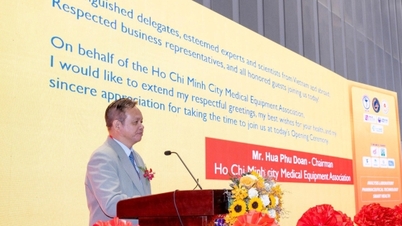

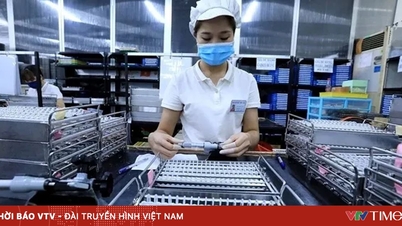

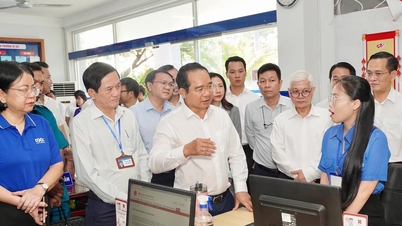

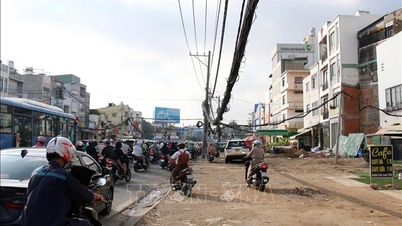
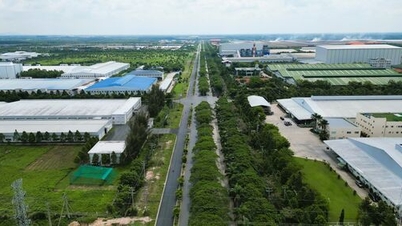

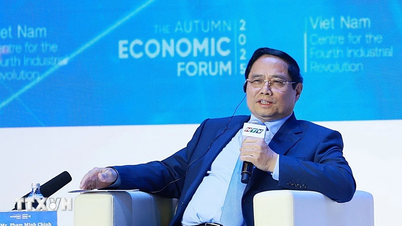



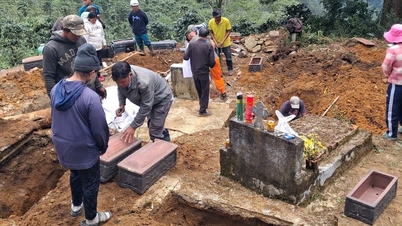

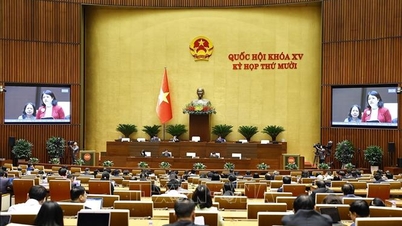

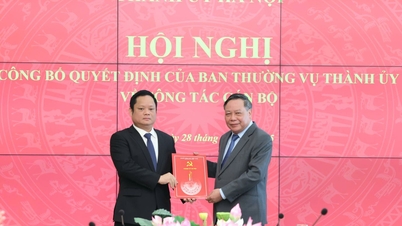
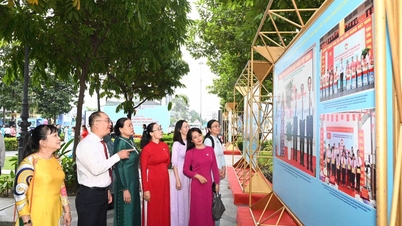




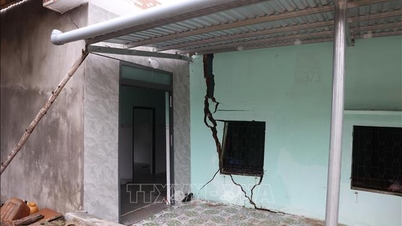

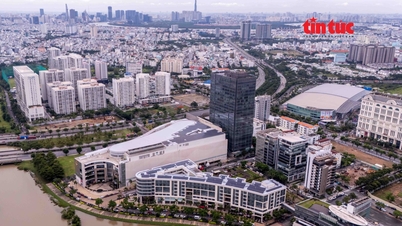
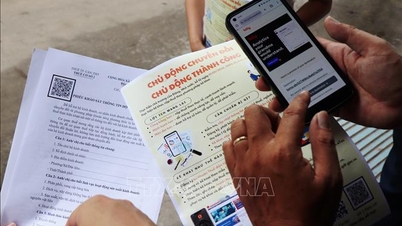
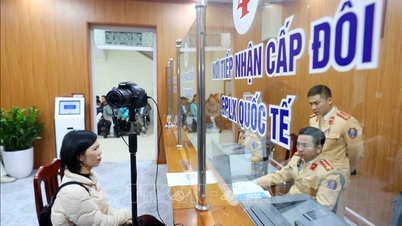
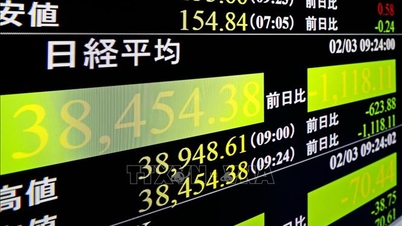







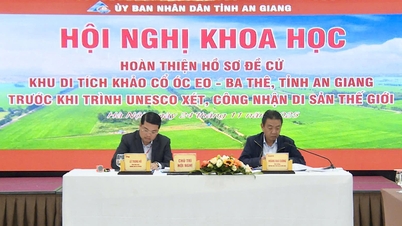


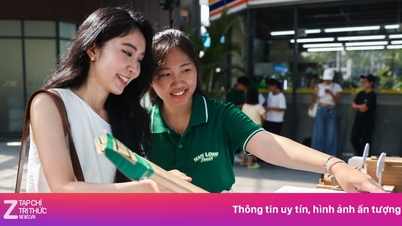



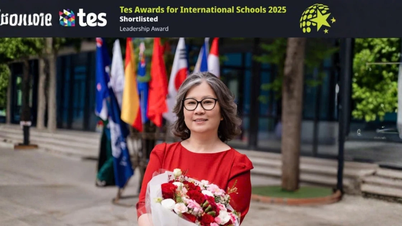
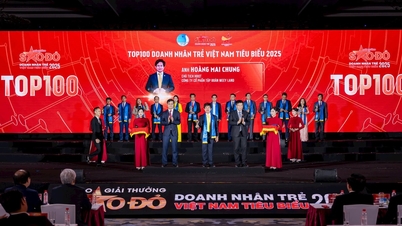


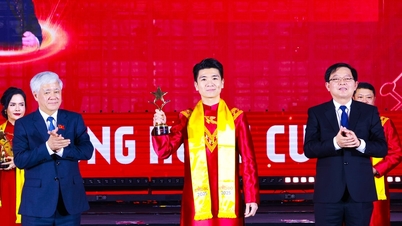
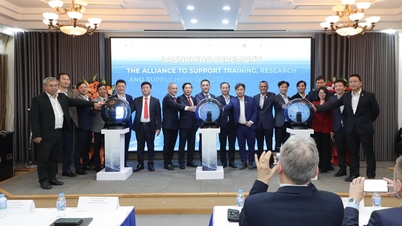



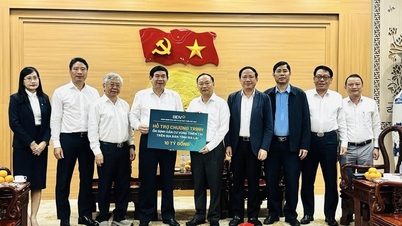

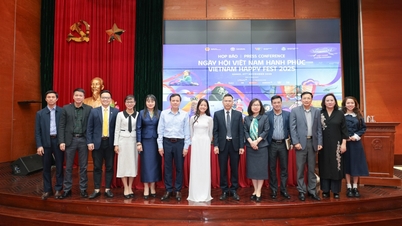















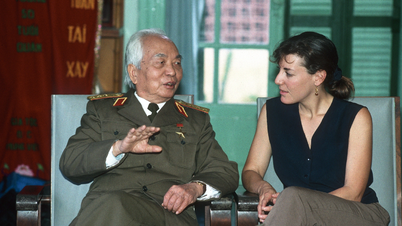

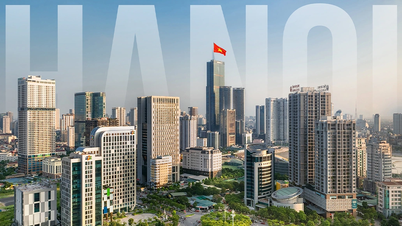
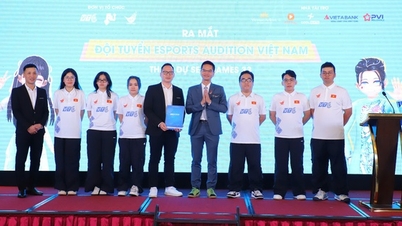


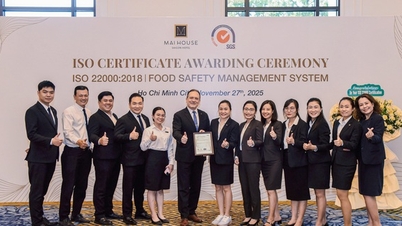
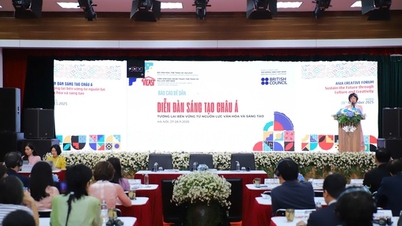
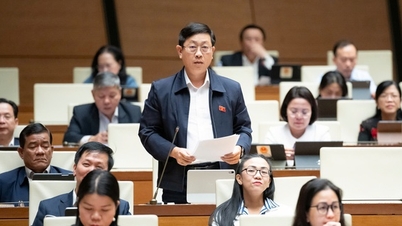
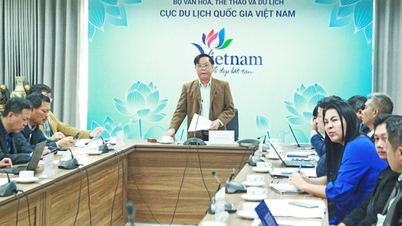



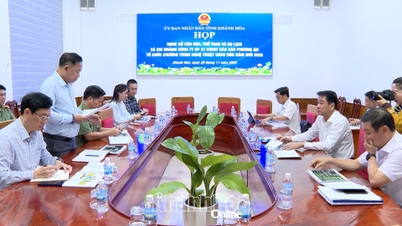

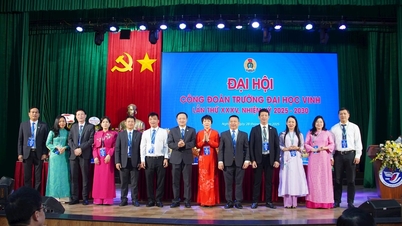



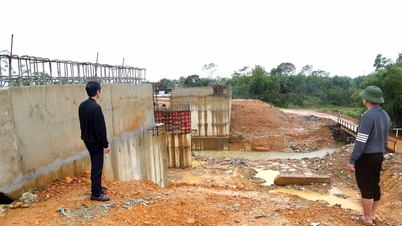









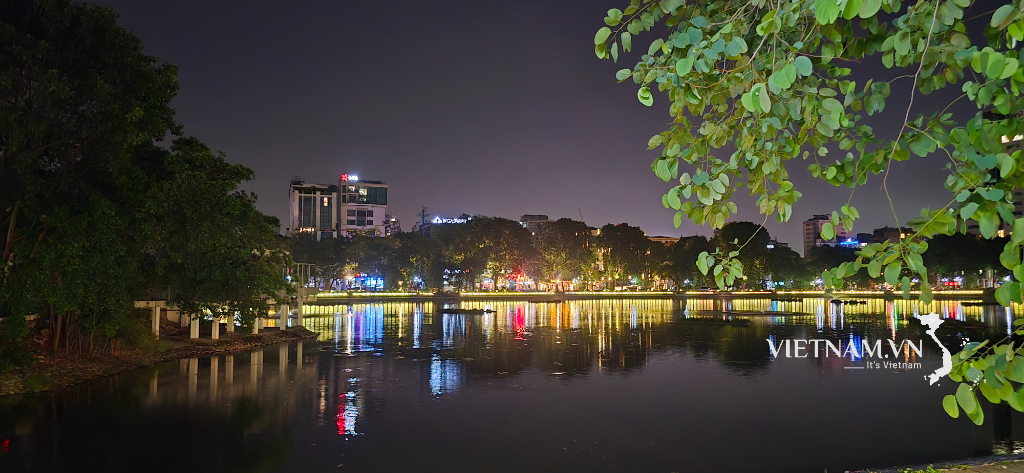



Comment (0)